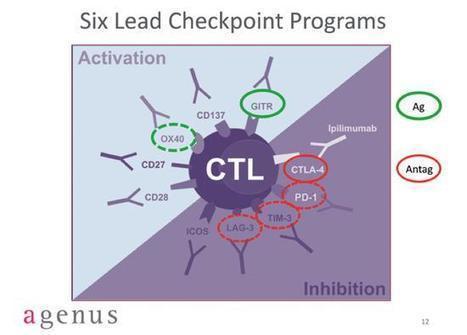The promise of cancer immunotherapy was validated officially in March 2011 when the FDA approved Yervoy (ipilimumab; Bristol-Myers Squibb) for the treatment of unresectable or metastatic melanoma. The approval was based on results of a randomized, double-blind clinical trial establishing that ipilimumab (a humanized anti-CTLA-4 monoclonal antibody) treatment extended the overall survival of patients with advanced melanoma. CTLA-4 is a member of the so-called family of checkpoint regulators, which are expressed on immune cells that activate or inhibit an immune response. An increasing number of immune checkpoint regulators are now being identified and targeted for immunotherapy. At the 2014 meeting of the American Society of Clinical Oncology (ASCO), it was reported that checkpoint blockade as a monotherapy or combination therapy was used successfully to treat advanced melanoma and non–small cell lung cancer. Checkpoint blockade immunotherapy was also used successfully for the treatment of other cancers, most notably genitourinary cancers such as urothelial bladder cancer and metastatic renal cell carcinoma. This report is a compiled summary of cancer immunotherapy highlights presented at the 2014 ASCO meeting by various investigators. Cancer Immunol Res; 2(8); 714–9. ©2014 AACR.
Via Krishan Maggon



 Your new post is loading...
Your new post is loading...








Cancer Immunol Res. 2014 Aug;2(8):714-9. doi: 10.1158/2326-6066.CIR-14-0119.Cancer Immunotherapy Highlights from the 2014 ASCO Meeting.Harshman LC1, Drake CG2, Wargo JA3, Sharma P4, Bhardwaj N5.